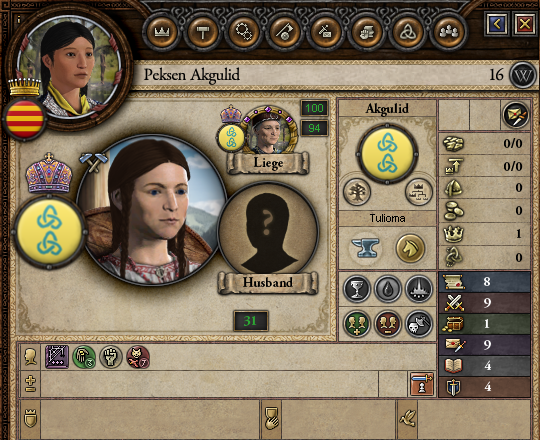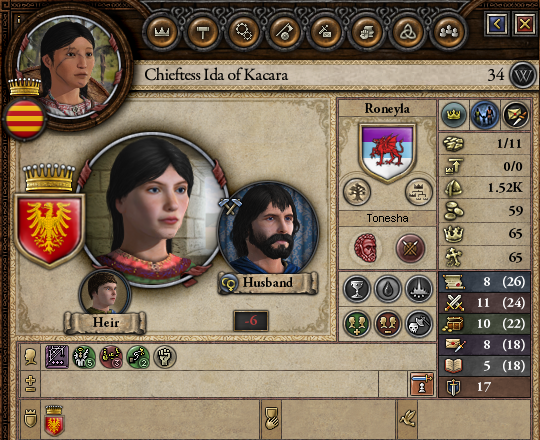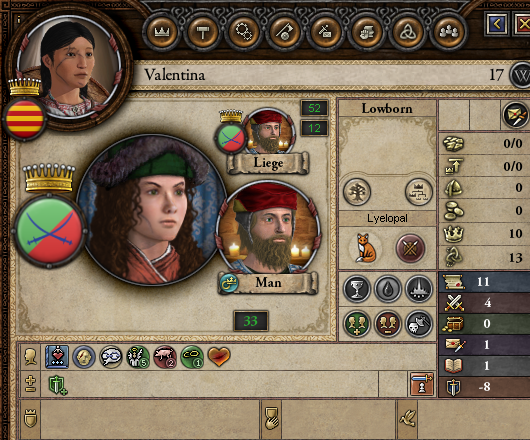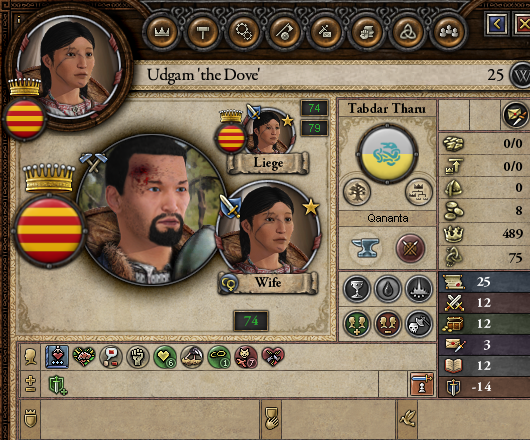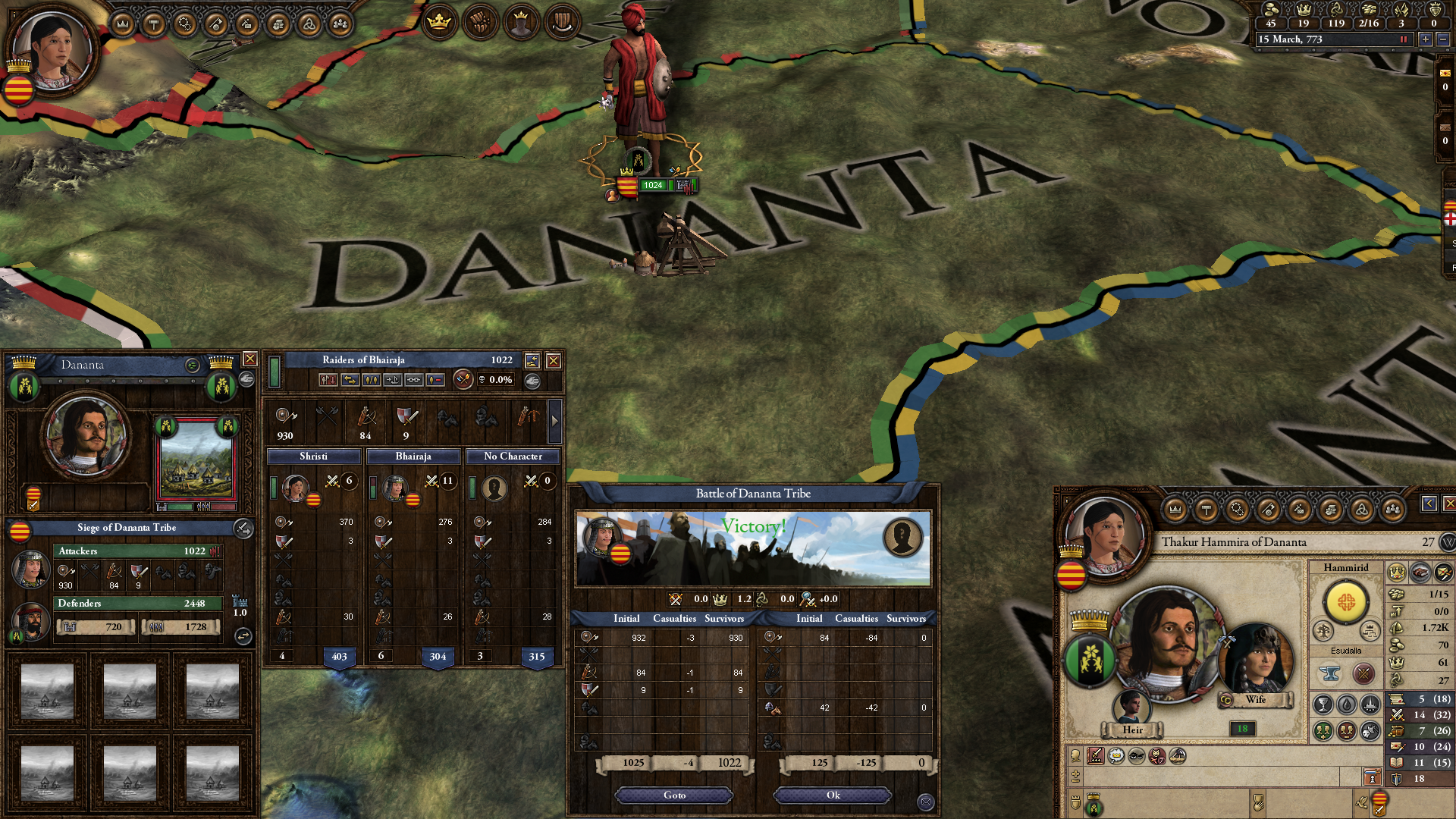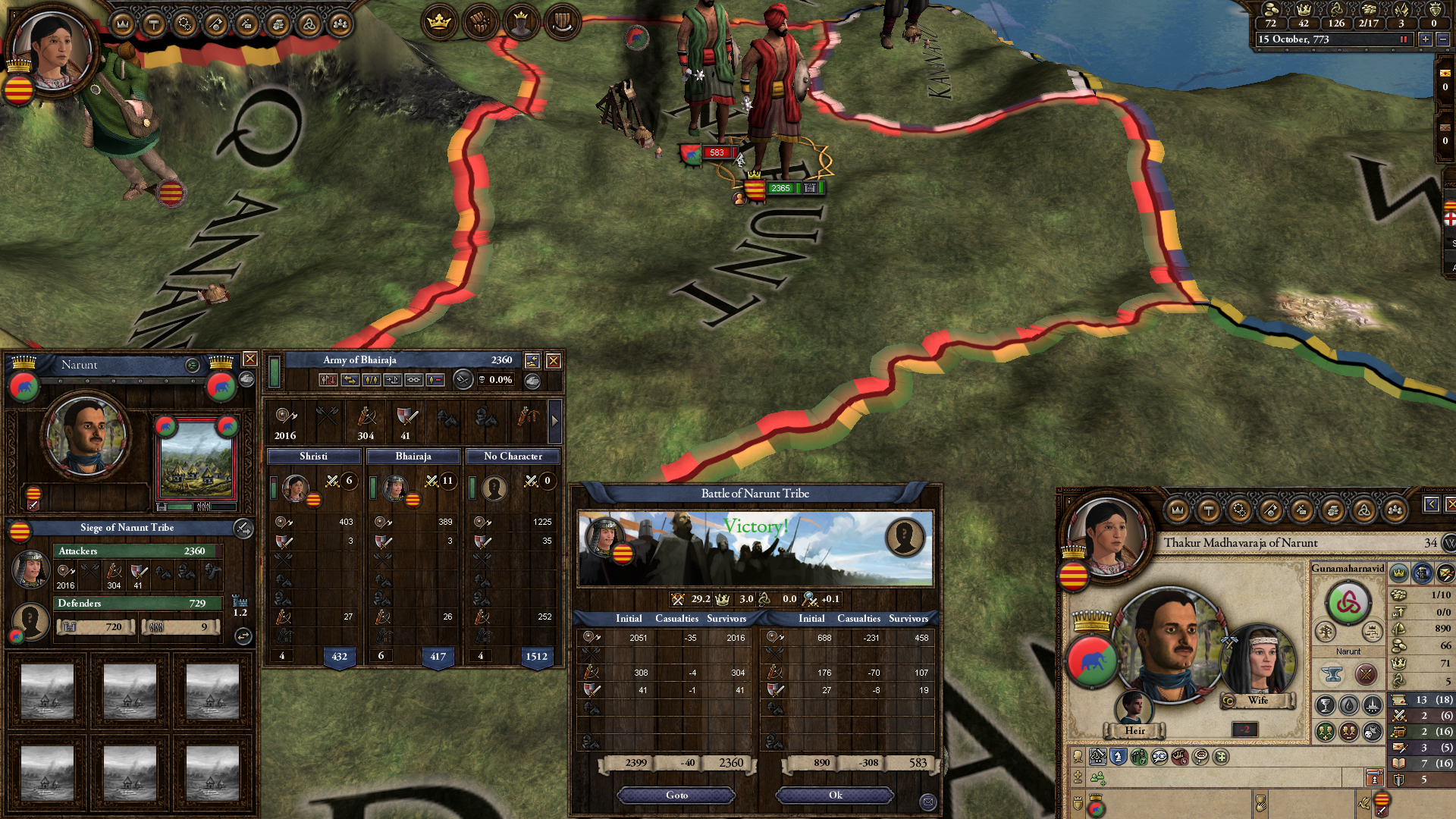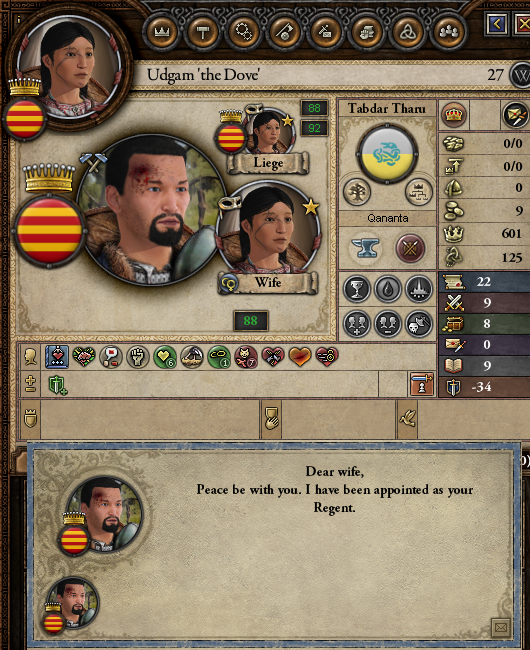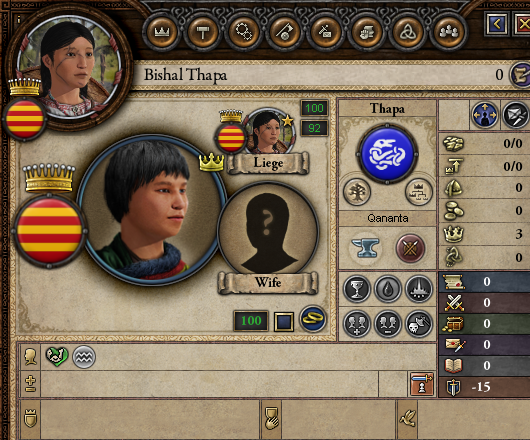कएनुरन बाट एक कनन्त कथा
A Qananta Story from Caenuran
A Qananta Story from Caenuran
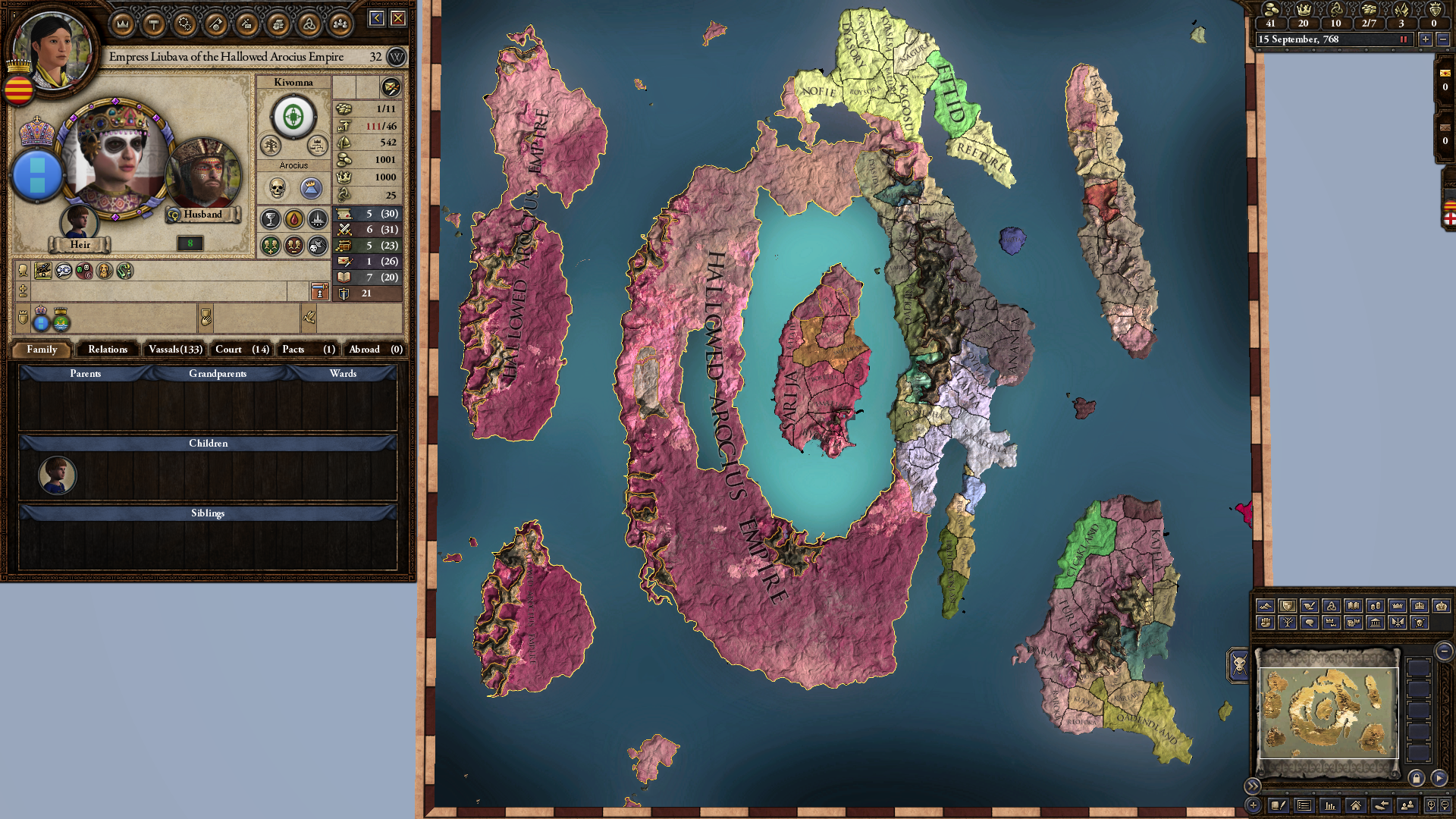
Right from her teenage years, Liubava Kivomna embarked on a path of world conquest. Or at least the conquest of Caenuran, for this continent is all anyone knows now. There are rumors that the world is much larger beyond the continent of Caenuran but no one knows for sure. And thus, our story is set solely in these known islands. By the time Liubava reached the age of 32, she controlled the western half of Caenuran. Hallowed Arocius Empire, that was the name she and her subjects gave to the realm. Empress Liubava was of the Arocius people; just like most of her important vassals were. She had first conquered her own people before setting out to conquer others.
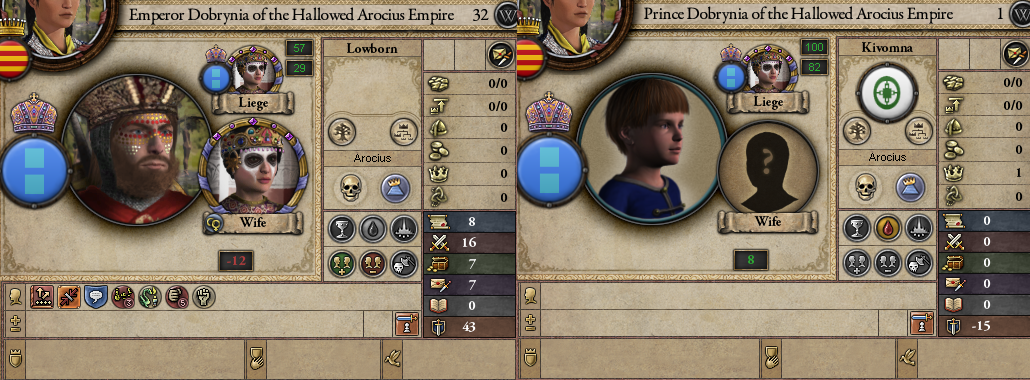
While the empress might have been a charismatic speaker who could rally her multi-ethnic subjects to fight for her and one of the greatest rulers in history of Caenuran, she was still a woman. And her own Rurataite faith forbade women from fighting in wars. As such, the imperial army was led by her husband Dobrynia in battles and he was one of the most brilliant strategist of his time. He had been one of her most loyal followers since the beginning; at a time when many other Arocius men had refused to fight for a teenage girl who talked of world conquest. Where others would have given up, both the empress and her husband insisted on a battle being fought to the last man and they often won against many odds due to this ferocity. The imperial couple had a son. The one year old was named after his father and he was destined to inherit what they had built over the the decades and perhaps, even the entirety of Caenuran.
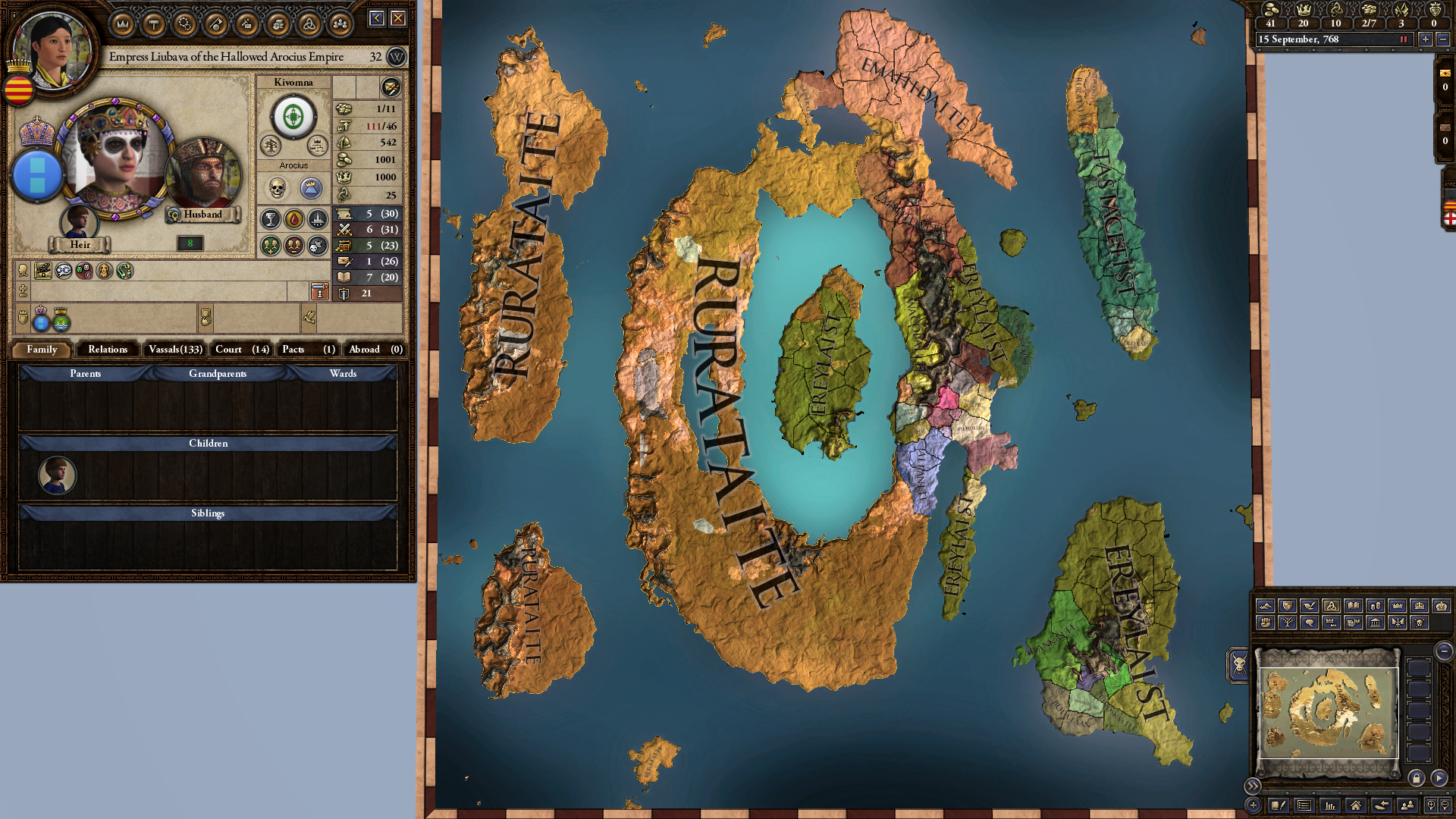
The Hallowed Arocius Empire's state religion was the Rurataite faith. This religion, just like the empire, now dominated the western half of Caenuran. Members of the imperial religion are easily recognizable by their distinct facial markings. The Rurataites worship the Crone of Time through their ceremonial dances. A host of priests initiate the dance and they are followed by men and women from all backgrounds. While the priests quote texts from The World's Gospel, others play music and sing love songs. The songs mostly speak about the great love between the Crone of Time and the Undying and how the two used to dance together like mortals do before their falling out. According to Rurataite belief, nights and days were created from the separation between the two former lovers. These dances are also used as opportunities for young men and women to find the love of their lives. It is rumored that even Empress Liubava first met her future husband Dobrynia during one such ceremonial dance.
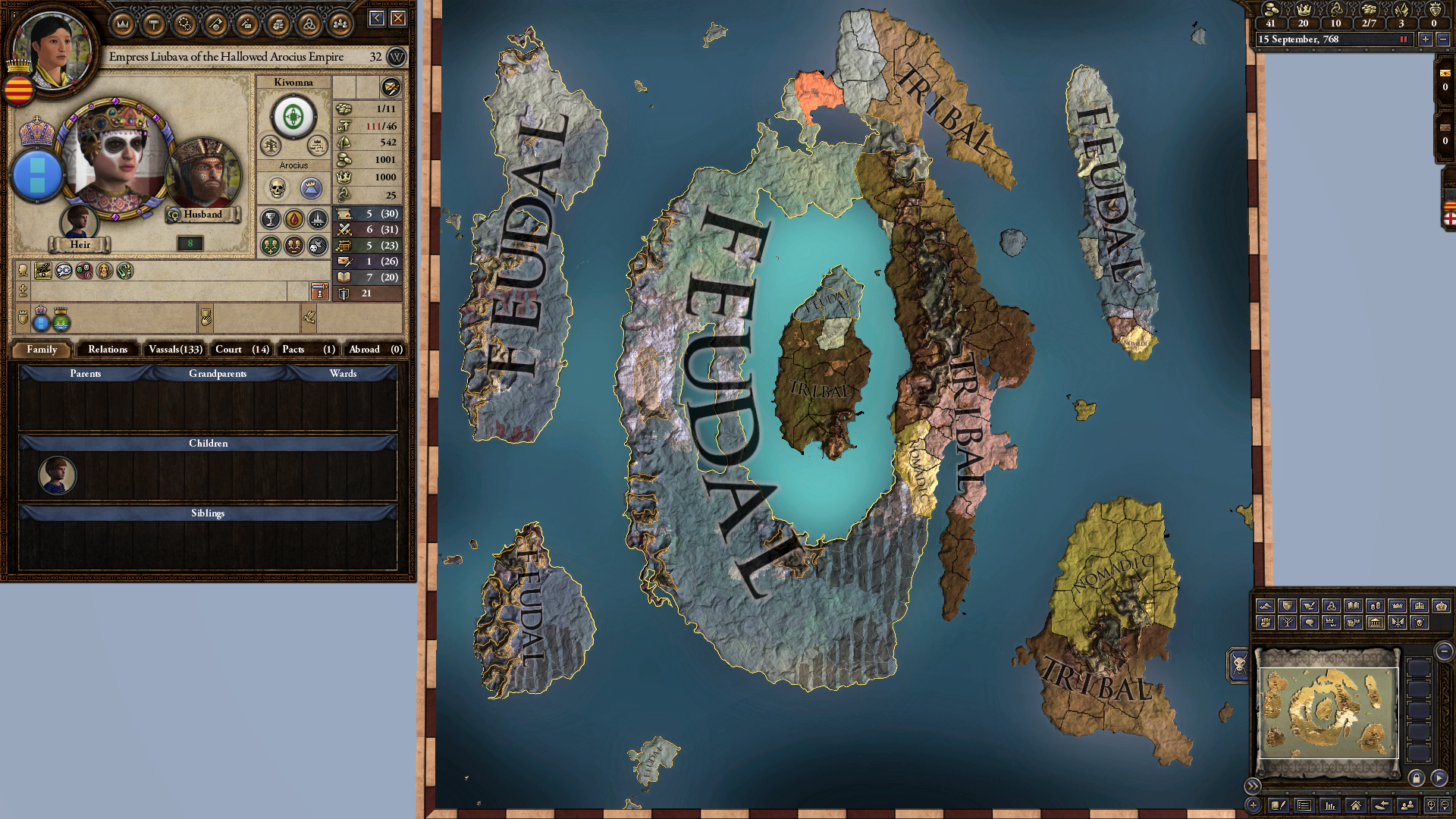
A drastic change in the system of governance with Liubava's conquests was that many peoples subjugated by her were forced to adopt the feudal ways of the Arocius people. Several of her vassals, however, still refused to give up the tribal ways of their ancestors. Outside the empire, only the people of a certain northeastern island lived in settled towns and cities. The rest of the eastern half of Caenuran was still either tribal or nomadic. You might be wondering why we are suddenly focusing on all these tribes and nomads instead of the great conqueror Liubava. It is because this story is not about the the Hallowed Arocius Empire or its empress. Rather, this story is about one of the many tribal peoples who were still free from the imperial authority of Liubava. In particular, a young woman from the Thapa clan of one of the Qananta tribes.
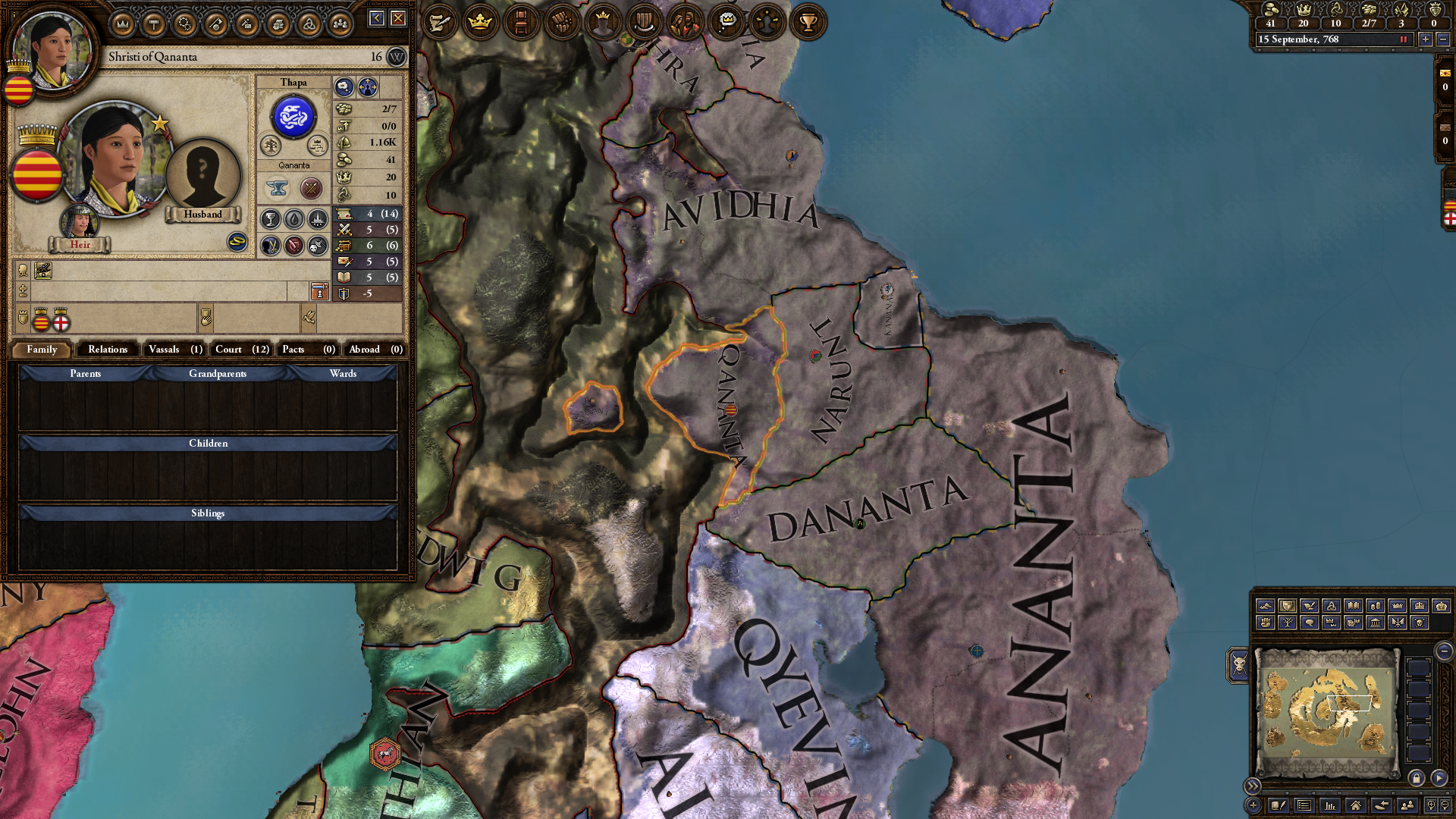
Not much is known about the story of Shristi Thapa or the Qananta people before the year 768. The only information known is that the Qananta tribes had been living around the Himals (the Qananta name for the mountain range) for a long period of time and that they spoke a language that belonged to the Kolanka family. How the teenage girl had become the sole ruler of the Qananta tribes is also not known but we do know that in the year 768, Shristi Thapa became of marriageable age.
The Qananta people, Shristi included, followed the Ereylaist faith. According to the Ereylasists, there was only fire in the beginning and Grandfather Life forged the world out of that fire. Shamans wrote down visions from Grandfather Life in the Great Secret. However, one of the stories in the book was deemed heretical and has been removed from the holy book. The shaman who write those offensive pages was burned alongside the heresies he had written.
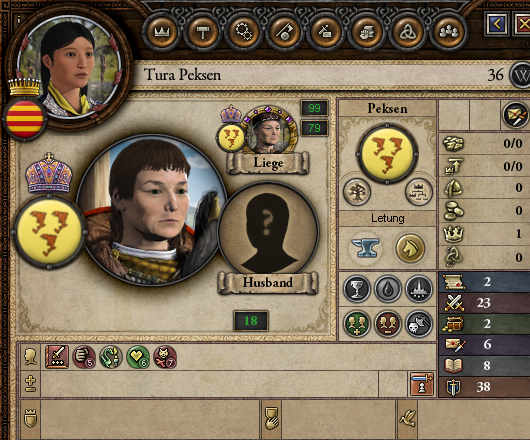
The bear is a sacred animal among the Ereylaists who generally do not even dare utter its name. Rather, they worship the mighty beasts and honor them with titles such as 'Kings and Queens of the Forest'. Ereylaist warriors in the 'Company of the Bear' seek to draw strength from them. These warriors take part in a complex ritual after hunting one of the mighty beasts. The Kings and the Queens of the Forest are convinced through the ritual that they were not slain but rather died due to their own faults. Once the ritual is complete, the warrior then dons themselves in the fur of the slain. Shristi Thapa hoped to be one of these prestigious warriors and she had sent a letter to Heroine Tura Peksen of the nomadic Letung tribe (the Qananta were not the only Ereylaists but rather one of the many tribal and nomadic peoples who worshipped Grandfather Life and the Kings and the Queens of the Forest). Tura Peksen had replied back with a letter that ordered Shristi to wait until a member of the Company of the Bear could be found to test her worth.
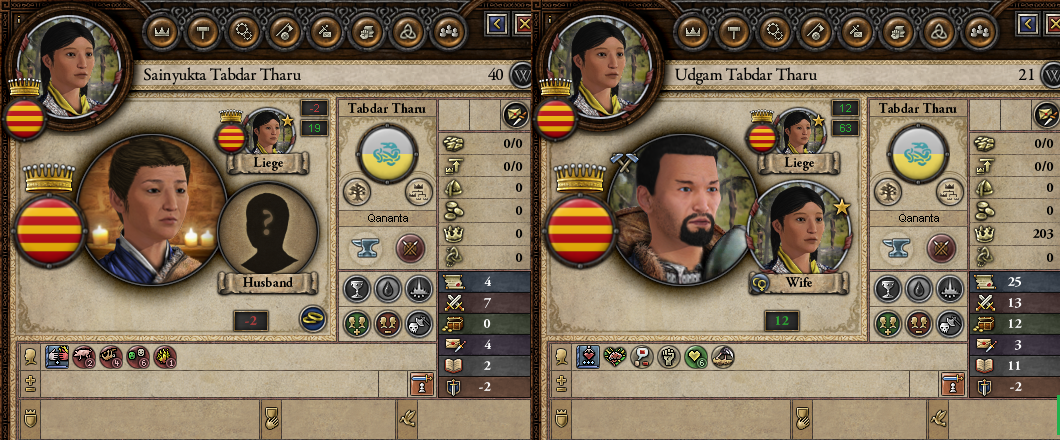
Our story begins on 15 Poush (September) of the year 768 when Shristi Thapa decided to get married. The Tabdar Tharu clan is the only noble family in Qananta records before 768 and thus it should be no surprise that the upstart teenage countess Shristi decided to cement her ruler through a marital alliance with this clan. The matriarch of the Tabdar Tharu family was 40 years old Sainyukta and she knew what the girl was visiting her for. She had six sons and four daughters but there were no well-off families among the Qananta tribes to marry them off to. This girl Shristi was no more rich or powerful than any other clan leader but she had still somehow managed to become the leader of all Qananta tribes and become the countess. After the two women talked for hours, it was decided that Sainyukta's second eldest son Udgam would be married to Shristi. At 21 years of age, Udgam was the sharpest among his siblings and already a member of the Company of the Bear that Shristi wished desperately to join. After his marriage to Shristi was made official in front of the holy fire by the shaman Sunil of Ranana (who was also the Chancellor of Qananta and the Court Physician), his roles further increased as the Steward and the Designated Regent of Qananta.
Last edited:
- 1



